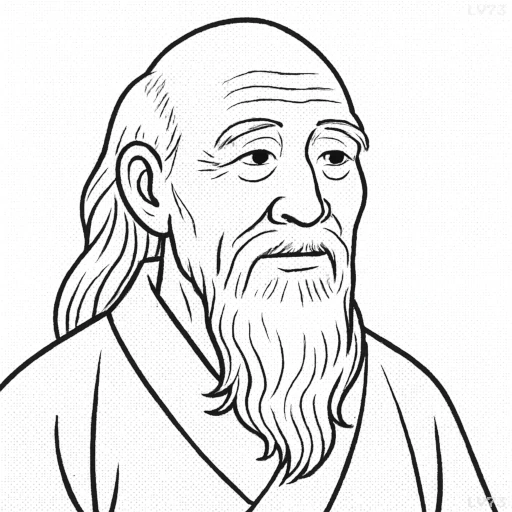“Truthful words are not beautiful; beautiful words are not truthful. Good words are not persuasive; persuasive words are not good.”

- 571 BC? – 470 BC?
- Born in China
- Philosopher
table of contents
Quote
“Truthful words are not beautiful; beautiful words are not truthful. Good words are not persuasive; persuasive words are not good.”
Explanation
This quote from Laozi explores the tension between authenticity and appearance in communication. Laozi suggests that truthful words may not always sound pleasing or eloquent, but they hold the strength of honesty and clarity. In contrast, words that are beautiful or charming might be deceptive or designed to manipulate, rather than convey the truth. Similarly, good words, which are grounded in integrity and virtue, are not always the most persuasive, as they may not appeal to the desires or emotions of the listener. On the other hand, words that are designed to be persuasive often focus on manipulation or appeal to the ego, and in doing so, may not be rooted in true goodness or moral clarity. Laozi is pointing out that the most powerful communication is not necessarily the most polished or manipulative, but that which is rooted in truth and virtue, regardless of how it is received.
In modern life, this idea can be applied to leadership, advertising, and even personal interactions. In a world filled with persuasive marketing, social media personas, and the constant pressure to present ourselves in an idealized way, Laozi reminds us that the most impactful and lasting communication comes from authenticity and honesty, even if it is not always flattering or convenient. True leaders speak the truth, even when it is not popular or well-received, and genuine relationships are built on honesty, not on trying to win favor with charming or manipulative words.
Laozi’s wisdom calls us to value substance over style in our words and actions. Rather than striving for persuasion or beauty in speech, we should focus on being honest and virtuous, knowing that the power of truth and goodness will naturally resonate with others, even if it does not immediately persuade or flatter. The quote encourages us to seek a deeper connection with reality, where true goodness and truthfulness shine through, free from the need to be flattering or convincing.
Would you like to share your impressions or related stories about this quote in the comments section?


